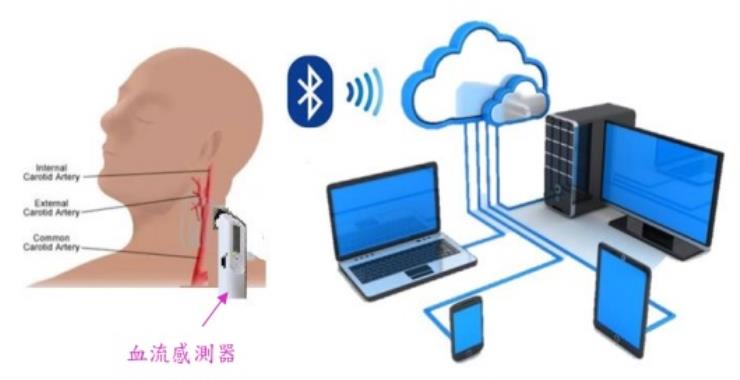Development of the PPG blood flow sensor system applied to detect the injury of carotid artery induced by the radiotherapy for headand-neck cancer patients
Institute of Electrical and Control Engineering
2022/07/08

-

-
-
blood flow sensor system
Dedicated to detect the carotid stenosis of patients with head and neck cancers. The aforementioned carotid stenosis are often induced by radiotherapy, possibly leading to cerebral ischemia and/or stroke. The MOHW of Taiwan has reported in June 2020 that cancers remains the no. 1 cause of death for 38 years, about 28.6% of the total deaths in the nation and increasing every year. Among all the cancer treatments, radiotherapy is one of methods, accepted by evidence-based medicine and commonly adopted nowadays. Unfortunately, over 50 % of the patients under radiotherapy show the symptoms of carotid stenosis, and 20% is under the risks of cerebral ischemia and/or stroke, therefore the life quality of these patients degrade significantly. Therefore, how to prevent and/or contain carotid stenosis become an important unmet medical need. To meet the need, the joint effort of this project will develop new LED/PD modules at 950-1000nm and then utilize the PPG blood flow volume (BFV) sensor and algorithm developed well by the Sensors IC Lab at National Chiao Tung University and Wistron Corp., to collect BFV data from the patients with neckand-head cancers at early-, mid- and late- stages of radiotherapy at the dept. of radiation oncology at MacKay Memorial Hospital. The collected data will be analysed with the associated therapeutic dose towards, towards the aim of establishing a clinical predictive model to effectively and accurately achieve earlystage detection of carotid stenosis, thus, facilitating the ensuing precision and preventive medicine.